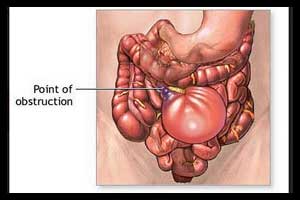- Home
- Editorial
- News
- Practice Guidelines
- Anesthesiology Guidelines
- Cancer Guidelines
- Cardiac Sciences Guidelines
- Critical Care Guidelines
- Dentistry Guidelines
- Dermatology Guidelines
- Diabetes and Endo Guidelines
- Diagnostics Guidelines
- ENT Guidelines
- Featured Practice Guidelines
- Gastroenterology Guidelines
- Geriatrics Guidelines
- Medicine Guidelines
- Nephrology Guidelines
- Neurosciences Guidelines
- Obs and Gynae Guidelines
- Ophthalmology Guidelines
- Orthopaedics Guidelines
- Paediatrics Guidelines
- Psychiatry Guidelines
- Pulmonology Guidelines
- Radiology Guidelines
- Surgery Guidelines
- Urology Guidelines
New Bologna guidelines for adhesive small bowel obstruction (ASBO)

Adhesive small bowel obstruction (ASBO) is a common surgical emergency, causing high morbidity and in some cases may prove to be fatal. The current guideline which appears in the World Journal of Emergency Surgery is a revised version of the Bologna guidelines to evidence-based diagnosis and treatment of ASBO. The new guideline presents recommendations that can be used by surgeons who treat patients with ASBO.
Although adhesive small bowel obstruction is a common condition, the prevention and treatment are often characterized by surgeons’ personal preferences rather than standardized evidence-based protocols. There is a large amount of conflicting and low-quality evidence in publications regarding treatment of adhesive small bowel obstruction.
Therefore, the World Society of Emergency Surgery (WSES) working group on ASBO has developed evidence-based guidelines to support clinical decision making in the diagnosis and management of ASBO
Read Also: IIIT-Delhi develops Stethescope-Microphone apparatus that can predict bowel movements
Key Recommendations:
- Laparoscopic surgery reduces adhesion formation and might reduce subsequent incidence of ASBO.
- Hyaluronate carboxymethylcellulose reduces adhesion formation and the risk of subsequent reoperations of adhesive SBO. The use of this barrier seems cost-effective in open colorectal surgery.
- In the absence of signs that require emergent surgical exploration (i.e., peritonitis, strangulation, or bowel ischemia), non-operative management is the treatment strategy of choice.
- A trial of non-operative management can be continued safely for 72 h.
- Initial evaluation should be complemented with the assessment of nutritional status and laboratory tests evaluating at least blood count, lactate, electrolytes, and BUN/Creat
- Plain X-rays have only limited value in the workup of patients with small bowel obstruction and are not recommended.
- Optimal diagnostic workup should include a CT scan in the assessment and water-soluble oral contrast. In the absence of the need to perform immediate surgery, a follow-up abdominal X-ray should be made after 24 h. If the contrast has reached the colon, this is indicative of the resolution of the bowel obstruction.
- Long trilumen Naso-intestinal tubes are more efficacious than nasogastric tubes in non-operative management but require endoscopic placement.
- Adhesion barriers reduce the risk of recurrence for ASBO following operative treatment.
- Younger patients, and pediatric patients, in particular, have a higher lifetime risk of developing adhesion-related complications and might, therefore, benefit most from adhesion prevention.
- Patients with diabetes might require more early operative intervention.
For more reference log on to https://doi.org/10.1186/s13017-018-0185-2

Disclaimer: This site is primarily intended for healthcare professionals. Any content/information on this website does not replace the advice of medical and/or health professionals and should not be construed as medical/diagnostic advice/endorsement or prescription. Use of this site is subject to our terms of use, privacy policy, advertisement policy. © 2020 Minerva Medical Treatment Pvt Ltd